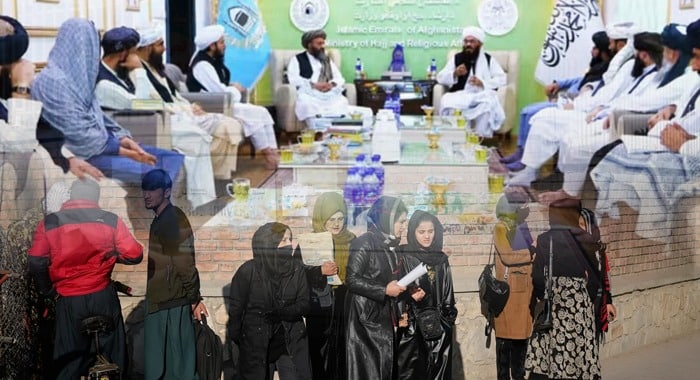Despite receiving formal recognition from Russia earlier this month, the Taliban continue to govern on their own hardline terms, showing no signs of reform or flexibility, particularly when it comes to women’s rights, girls’ education, and basic civil liberties.
In the latest blow to education, Taliban authorities in Andarab district, located in the mountainous northeastern province of Baghlan, have imposed a ban on schooling for girls beyond Grade 3. Local sources report that nearly all female teachers in the district have been summarily dismissed and ordered to return home. Only three women educators now remain in the entire district, which has a population exceeding 100,000.
The abrupt decision has left the local community devastated. Eyewitnesses say many teachers left schools in tears, while young girls bid farewell to their classrooms with broken dreams and tearful eyes. The education ban is expected to cut off hundreds of school-aged girls from any future academic opportunities.
Andarab, already an under-served region educationally, now finds itself further isolated. Locals say the move has caused widespread emotional and social distress, deepening fears that girls may remain permanently excluded from public life.
This fresh wave of repression comes amid a broader Taliban campaign targeting books and educational materials. According to state-run media, four ministries, Higher Education, Education, Information and Culture, and Hajj and Religious Affairs, recently held a high-level meeting to review books they consider ideologically “deviant.”
The meeting, ordered by Taliban Supreme Leader Hibatullah Akhundzada and chaired by Minister of Hajj and Religious Affairs Noor Mohammad Saqib, focused on purging content deemed contrary to the Taliban’s interpretation of Islam. Officials have been directed to collect such books from libraries, schools, and other public institutions and to warn the public against consuming them.
Saqib confirmed that the review will be led by religious scholars and conducted “in accordance with Sharia principles.” A joint committee will soon develop official censorship guidelines.
Since seizing power in August 2021, the Taliban have increasingly cracked down on literature, banning hundreds of titles they claim promote un-Islamic or anti-Taliban ideas. The Ministry of Information and Culture has prohibited the sale, publication, or reprinting of at least 100 books, many of which were previously part of school curricula.
While Moscow’s recognition of the Taliban marks a significant diplomatic development, it has done little to alter the regime’s isolation from the broader international community. Western nations continue to oppose any engagement with the Taliban, citing their ongoing abuses, particularly against women and girls, as a barrier to legitimacy. In fact, several Western voices are calling not for engagement, but for stronger sanctions and accountability.
As the Taliban deepen their ideological control, the cost is being paid by Afghan citizens, especially its women and children, whose futures continue to shrink behind closed classroom doors and silenced bookshelves.





